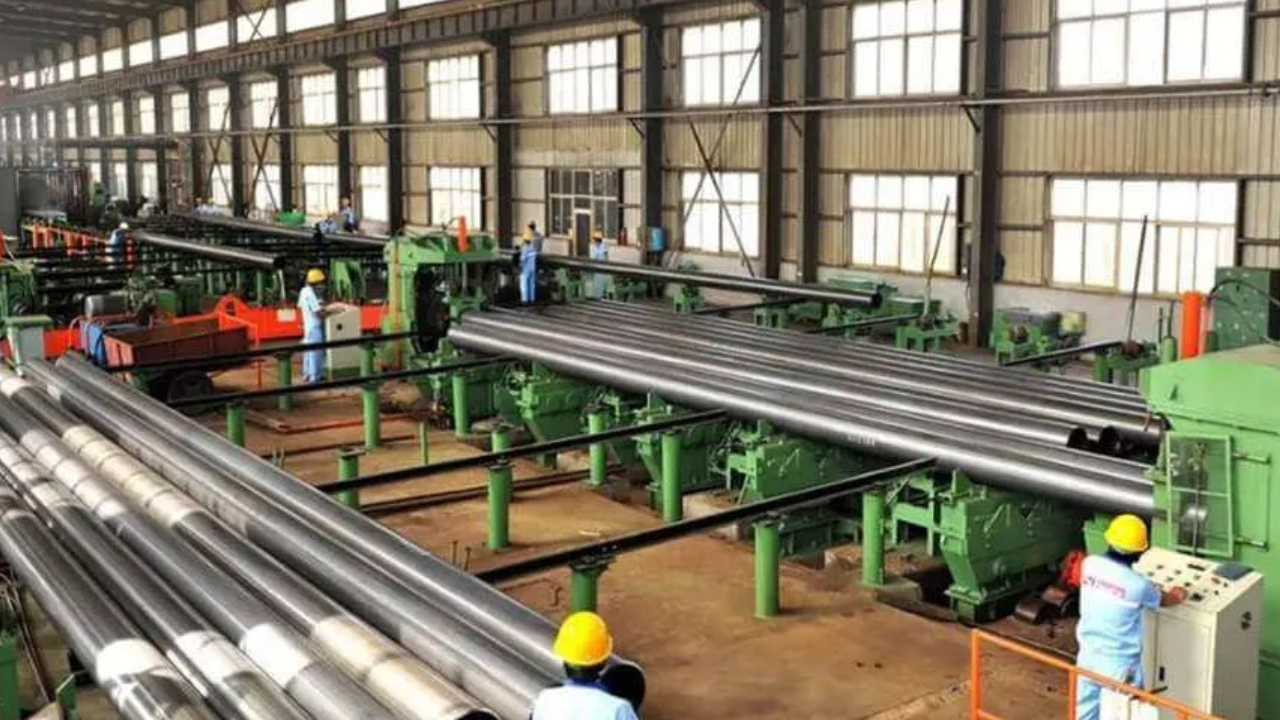Pipe manufacturing companies play an important function in diverse industries by way of producing crucial components that assist infrastructure, construction, and transportation structures. These corporations specialize in creating pipes of different materials, including steel, plastic, and copper, each designed to fulfill particular desires and standards.
Their products are vital to the functionality and protection of pipelines used for transporting fluids, gases, and solids throughout diverse programs. The significance of pipe production organizations extends beyond simply the production of pipes. They may be key individuals in infrastructure development and protection, imparting the substances vital for building robust and dependable systems.
These corporations employ advanced manufacturing techniques and adhere to rigorous best management standards to make certain their products can stand up to the pressures and situations they’ll encounter in the area. Moreover, pipe manufacturing companies regularly engage in research and improvement to innovate and improve pipe substances and designs.
Ways through Which Addressing Environmental Regulations in Pipe Manufacturing
Pipe manufacturing agencies face increasing scrutiny and laws aimed at minimizing their environmental impact. The industry is actively adapting to satisfy environmental standards and policies, focusing on sustainability, strength, efficiency, and pollution control. This article explores how companies are addressing these environmental guidelines in their pipe manufacturing strategies.
Sustainable Material Sourcing
Sustainable material sourcing in pipe production entails using recycled and eco-friendly substances to limit environmental effects. Companies prioritize recycled metals, which include steel, reducing the need for raw materials and keeping resources. By integrating recycled content and eco-friendly materials, manufacturers decrease their environmental footprint and aid a circular economy. This method not only meets regulatory necessities but additionally aligns with broader sustainability dreams, promoting useful resource conservation and lowering waste within the manufacturing system.
Energy Efficiency in Manufacturing
Energy efficiency in pipe production is achieved through advanced technology and practices aimed at lowering energy consumption. Groups invest in high-efficiency devices, optimize production techniques, and integrate renewable energy sources to minimize their strength. footprint. By way of adopting strength-saving measures which include improved insulation, computerized controls, and manner innovations, producers can cut power costs and decrease greenhouse gas emissions. Those efforts contribute to regulatory compliance and help broader sustainability desires by decreasing the overall environmental impact of manufacturing operations.
Emissions Control and Reduction
Emissions control and reduction in pipe production involve installing technology. Companies have additionally put in place carbon sequestration and storage structures to address greenhouse gas emissions. Through making an investment in cleaner technologies and optimizing strategies, producers reduce their environmental effects, observe regulatory requirements, and make a contribution to stepped-forward air. Those measures are critical for the assembly of environmental rules and helping global efforts to combat climate change.
Waste Management and Recycling
Effective waste management and recycling in pipe production requires awareness of minimizing waste technology and maximizing material reuse. Corporations implement techniques to reduce scrap through procedure improvements and recycling programs. Metal scraps and other by-products are frequently reprocessed and reintegrated into manufacturing, assisting a circular economic system. Those practices assist in protecting sources, reducing landfill waste, and meeting environmental policies. Via prioritizing recycling and efficient waste management, producers improve their sustainability and lower their average environmental impact.
Water Conservation and Management
Water conservation and management in pipe production involve imposing recycling and treatment structures to reuse water, decreasing the need for clean water. Corporations optimize water use through efficient cooling systems and improved cleansing procedures. By recycling wastewater and adopting water-saving technologies, manufacturers decrease their environmental effects and observe regulations. Those practices preserve water assets, lower operational costs, and assist sustainable production using lowering standard water consumption and wastewater discharge.
Compliance and Certification
Compliance and certification in pipe manufacturing include adhering to environmental regulations and pursuing certifications, which unit requirements for environmental control systems. Corporations develop and enforce systems to monitor environmental performance, set goals, and conduct audits. Accomplishing certification demonstrates a commitment to regulatory compliance and environmental responsibility. Normal tracking, obvious reporting, and non-stop improvement help manufacturers meet standards, build stakeholder beliefs, and ensure ongoing adherence to environmental regulations.
Innovation and Technology
Innovation and technology in pipe manufacturing focus on developing superior substances and methods to enhance environmental overall performance. Corporations put money into studies to create sustainable substances and utilize smart manufacturing technologies for technique optimization. Those innovations enhance performance, lessen waste, and lower energy intake. Using modern technology and materials, manufacturers deal with environmental challenges, follow regulations, and guide sustainability dreams, driving the enterprise in the direction of extra-green practices.
Remarks
Pipe manufacturing companies are actively addressing environmental guidelines through a combination of sustainable practices, power efficiency, emissions control, and progressive technology. By focusing on material sustainability, waste management, water conservation, and industry collaboration, businesses are running closer to lowering their environmental footprint and complying with regulatory necessities. The ongoing dedication to environmental obligations no longer only facilitates meeting cutting-edge policies but also sets the level for an extra sustainable future in pipe production.

